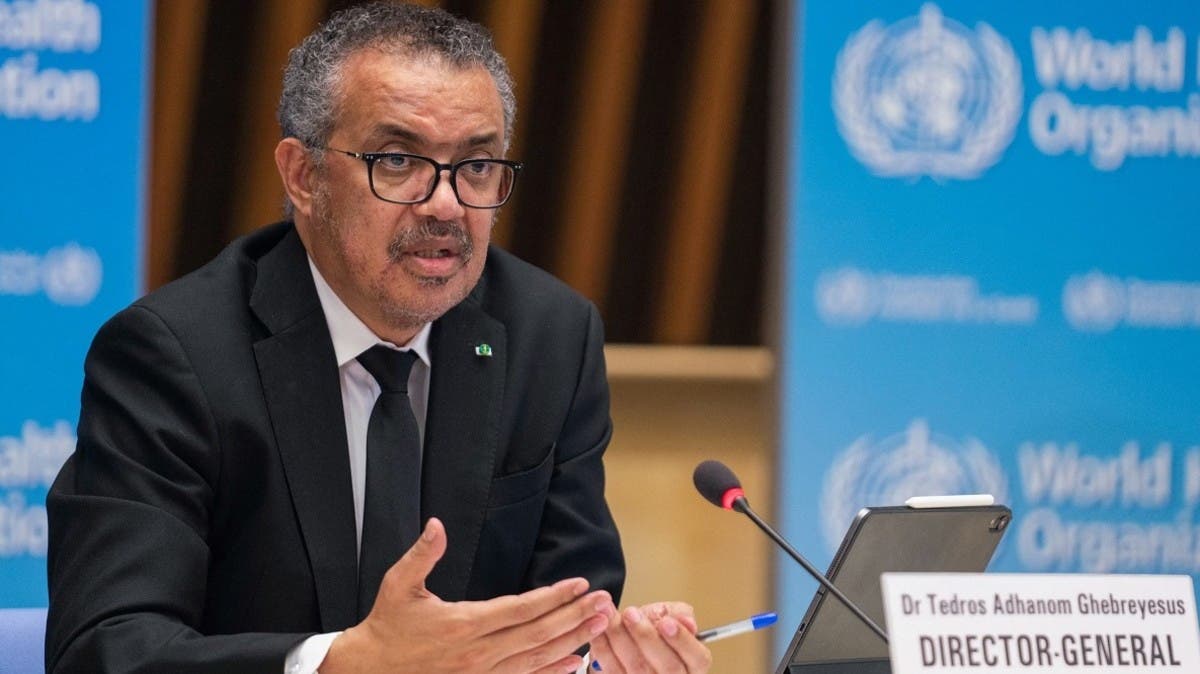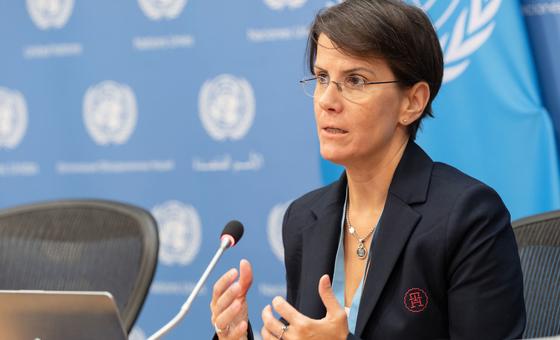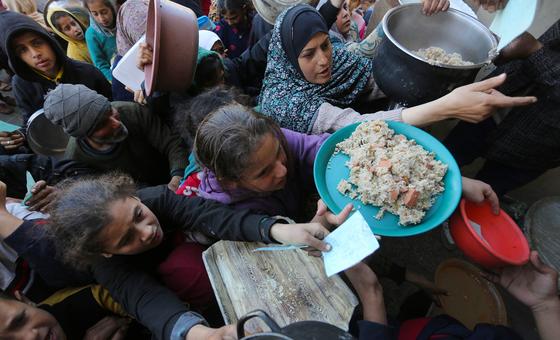The COVID-19 pandemic is far from over, the World Health Organization chief said Tuesday, cautioning against a narrative that the fast-spreading omicron variant is risk-free.
“This pandemic is nowhere near over,” Tedros Adhanom Ghebreyesus told reporters from WHO’s headquarters in Geneva.
Tedros warned against dismissing as mild the coronavirus variant omicron, which has spread like wildfire around the globe since it was first detected in southern Africa in November.
For more coronavirus news, visit our dedicated page.
The omicron variant of COVID-19 is much more contagious than previous strains but seems to cause less serious disease.
That has triggered a debate on the virus passing from being a pandemic to becoming endemic – with the implication that the danger will have passed.
But the WHO has warned that the sheer numbers of people infected will mean many vulnerable people are still falling seriously ill and dying.
“Omicron may be less severe, on average, but the narrative that it is a mild disease is misleading,” Tedros said.
“Make no mistake: Omicron is causing hospitalizations and deaths, and even the less severe cases are inundating health facilities.”
For the latest headlines, follow our Google News channel online or via the app.
He said there were indications that the omicron-fueled surge of COVID-19 cases may have peaked in some countries.
This, he said, “gives hope that the worst of this latest wave is done with, but no country is out of the woods yet.”
Tedros said there was an urgent need to remove the pressure building on health systems, especially in countries that still have low vaccination coverage.
“Now is not the time to give up and wave the white flag,” he said.
“We can still significantly reduce the impact of the current wave by sharing and using health tools effectively, and implementing public health and social measures that we know work.”
Data indicate that existing COVID-19 vaccines are less effective in protecting against omicron transmission than against previous strains.
But Tedros stressed it remained vital to ensure broader, more equitable access to the jabs.
“Vaccines may be less effective at preventing infection and transmission of omicron than they were for previous variants, but they still are exceptionally good at preventing serious disease and death,” he said.
Health experts warn that allowing COVID-19 to spread unabated in some places dramatically increases the chance of new, more dangerous variants emerging.
“With the incredible growth of omicron globally, new variants are likely to emerge,” Tedros cautioned.
Read more:
US faces wave of omicron deaths in coming weeks: Pandemic models
More infections mean new COVID-19 variants, warns US based researcher
Australia suffers deadliest day of pandemic as omicron drives up hospital cases

 World2 years ago
World2 years ago
 World2 years ago
World2 years ago
 Entertainment7 years ago
Entertainment7 years ago
 World7 years ago
World7 years ago
 Entertainment7 years ago
Entertainment7 years ago






